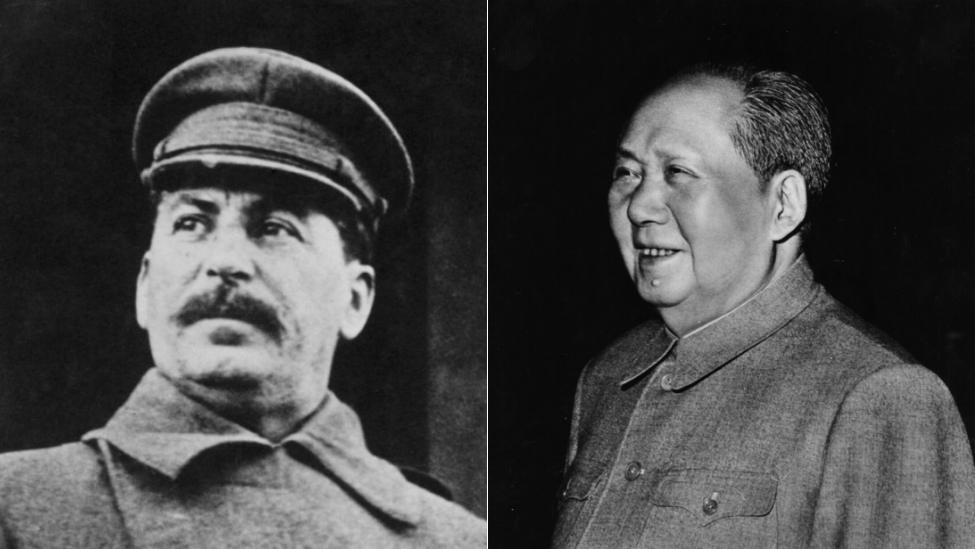'Enemies of the people': Trump remark echoes history's worst tyrants
- Published

Trump's remark drew comparisons with dictators Stalin and Mao
At a different time, in another country, it was effectively a death sentence.
Being branded an "enemy of the people" by the likes of Stalin or Mao brought at best suspicion and stigma, at worst hard labour or death.
Now the chilling phrase - which is at least as old as Emperor Nero, who was called "hostis publicus", enemy of the public, by the Senate in AD 68 - is making something of a comeback.
In November, the UK Daily Mail used its entire front page to brand three judges "enemies of the people" following a legal ruling on the Brexit process.
Then on Friday, President Donald Trump deployed the epithet against mainstream US media outlets that he sees as hostile.
"The FAKE NEWS media (failing New York Times, NBC News, ABC, CBS, CNN) is not my enemy, it is the enemy of the American People!" he wrote on Twitter.
The reaction was swift. "Every president is irritated by the news media. No other president would have described the media as 'the enemy of the people'", tweeted David Axelrod, a former adviser to President Barack Obama.
Gabriel Sherman, national affairs editor at New York magazine, called the phrase a "chilling" example of "full-on dictator speak".
Steve Silberman, an award-winning writer and journalist, wondered whether the remark would prompt Trump supporters to shoot at journalists.
And that might not be a far-fetched concern. Late last year, a Trump supporter opened fire in a pizza restaurant at the centre of a bizarre conspiracy theory about child abuse.
The US president's use of "enemies of the people" raises unavoidable echoes of some of history's most murderous dictators.
Under Soviet leader Joseph Stalin, out-of-favour artists and politicians were designated enemies and many were sent to hard labour camps or killed. Others were stigmatised and denied access to education and employment.
And Chairman Mao, the leader of China who presided over the deaths of millions of people in a famine brought about by his Great Leap Forward, was also known to use the phrase against anyone who opposed him, with terrible consequences.
Mr Trump's remark followed a bizarre and erratic press conference
The president was widely criticised for his choice of words.
"Charming that our uneducated President manages to channel the words of Stalin and fails to hear the historical resonance of this phrase," tweeted Mitchell Orenstein, a professor of Russian and East European studies at the University of Pennsylvania.
Carl Bernstein, a reporter who helped to bring down Richard Nixon with his reporting on the Watergate scandal, tweeted: "The most dangerous 'enemy of the people' is presidential lying - always. Attacks on press by Donald Trump more treacherous than Nixon's."
Mr Trump is not the first US president to have an antagonistic relationship with the media - Nixon is known to have privately referred to the press as "the enemy" - but his latest broadside, with all its attendant historical echoes, is unprecedented.